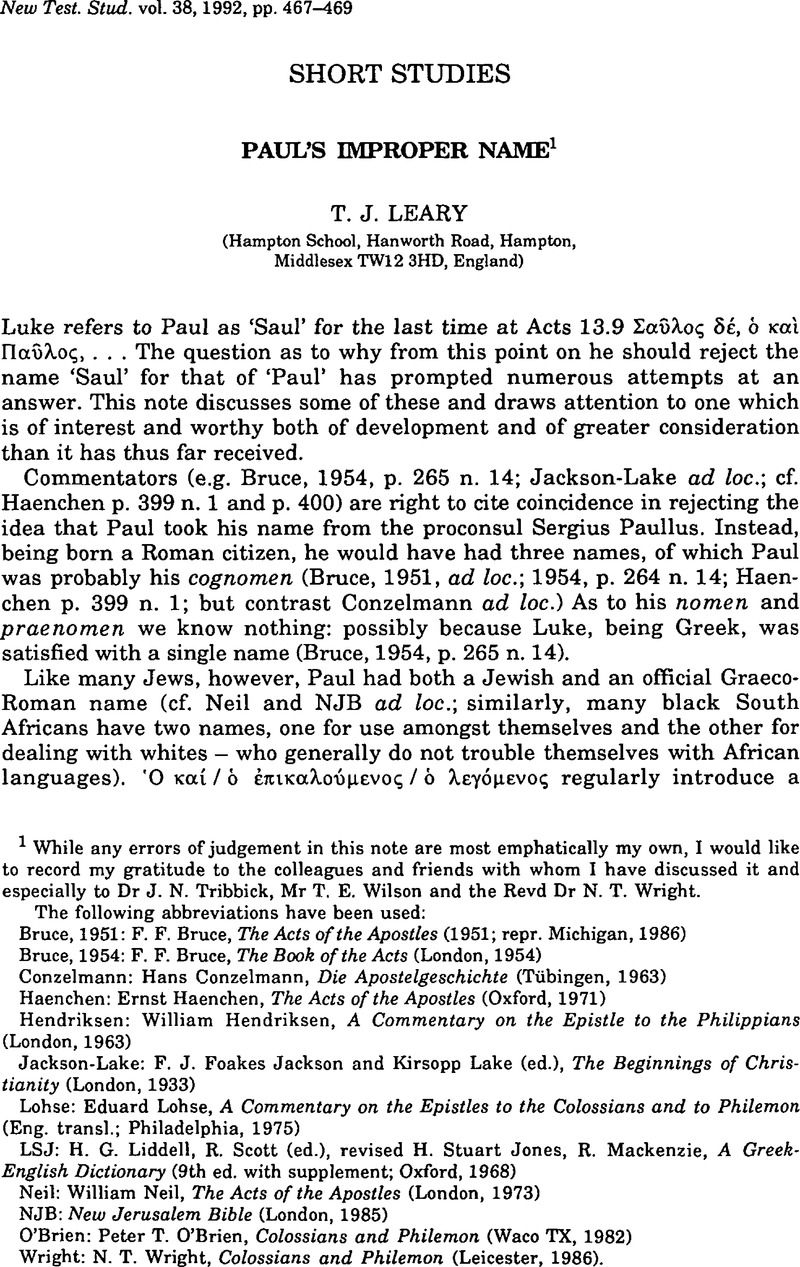Article contents
Paul's Improper Name1
Published online by Cambridge University Press: 05 February 2009
Abstract

- Type
- Short Studies
- Information
- Copyright
- Copyright © Cambridge University Press 1992
References
2 The formula can precede or follow the signum. As Paul is a Roman name, the signum here must clearly be Saul – see Haenchen, p. 399 n. 1, pace Jackson-Lake ad loc. who think it is Paul; cf. Acts 13.1 Συμεών ὁ καλούμενος Νίγερ.
3 That the name change indicates a new and different historical source (e.g. Jackson-Lake ad loc.) is rightly dismissed (e.g. by Haenchen p. 399 n. 1; Conzelmann ad loc.).
4 Haenchen does not believe, as this quotation might imply, that Paul is an ‘ordination name’ as was thought by Chrysostom (see Jackson-Lake p. 146) with comparison to Peter (i.e. Matt 16.18). Rather, he appears to suggest that the name-change is used by Luke as a dramatic device to emphasize Paul's new status as the Church's principal missionary.
5 For the importance attached by the ancients to gait when making character assessments, readers are referred to Headlam, W. (ed. Knox, A. D.), Herodas: the Mimes and Fragments (Cambridge, 1922)Google Scholar at 4.36 ὄκως βέβηκεν (p. 87).
6 At which see Wright ad loc; O'Brien pp. 291–2; Lohse p. 200. Note also the possibility of a punned name at Philippians 4.3, γνήσιε σύζυγε, at which see Hendriksen. Other Pauline puns include Romans 2.28–9, Ἰoυδαῖος (cf. ὤπαινος), ‘Judah’ meaning ‘praise’; Philippians 3.3—4, κατατομή (see Bauer s.v.) and περιτομή; Colossians 2.8, συλαγωγῶν (cf. συναγωγῶν) – see Wright, p. 100, and Galatians 5.12.
Dr Tribbick comments that for all the Greek transliteration of ‘Saul’, the name would have been pronounced ‘Shāᾱû’ in Aramaic and Hebrew. This is indeed true – for Jews; but Gentiles would have pronounced it as they would Greek, and Paul would have realised this.
7 That Paul retained consciousness at a theologically reflective level of his Hebrew name is perhaps indicated in Romans 11.12 where, referring to himself as evidence of a ‘remnant’, he quotes 1 Samuel 12.22 which refers in context to King Saul.
- 4
- Cited by


